
WOODSTOCK
- Barnard
- Bridgewater
- Hartland
- Killington
- Plymouth
- Pomfret
- Quechee
- Reading
- South Woodstock
- South Woodstock
- West Windsor
Please support the Vermont Standard 2025 Annual Appeal. Help now.
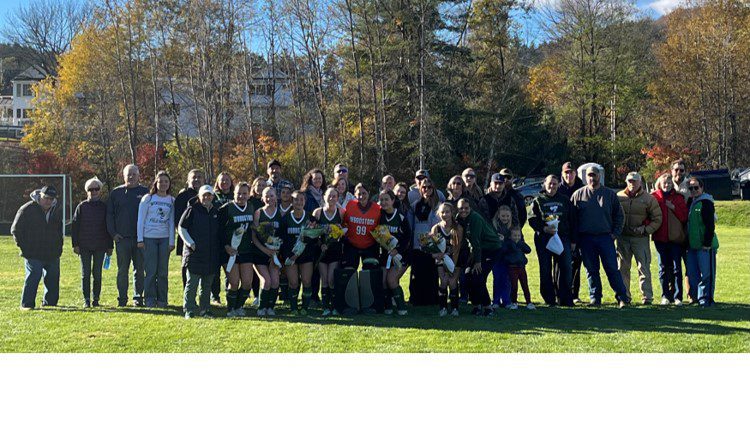
Sen. Welch calls for rescue of American families by extending ACA Tax Credits
Vote to fund wastewater facility renovations set for Town Meeting
Shaker Bridge production of ‘Eureka Day’ reminds us exactly why theater is so essential
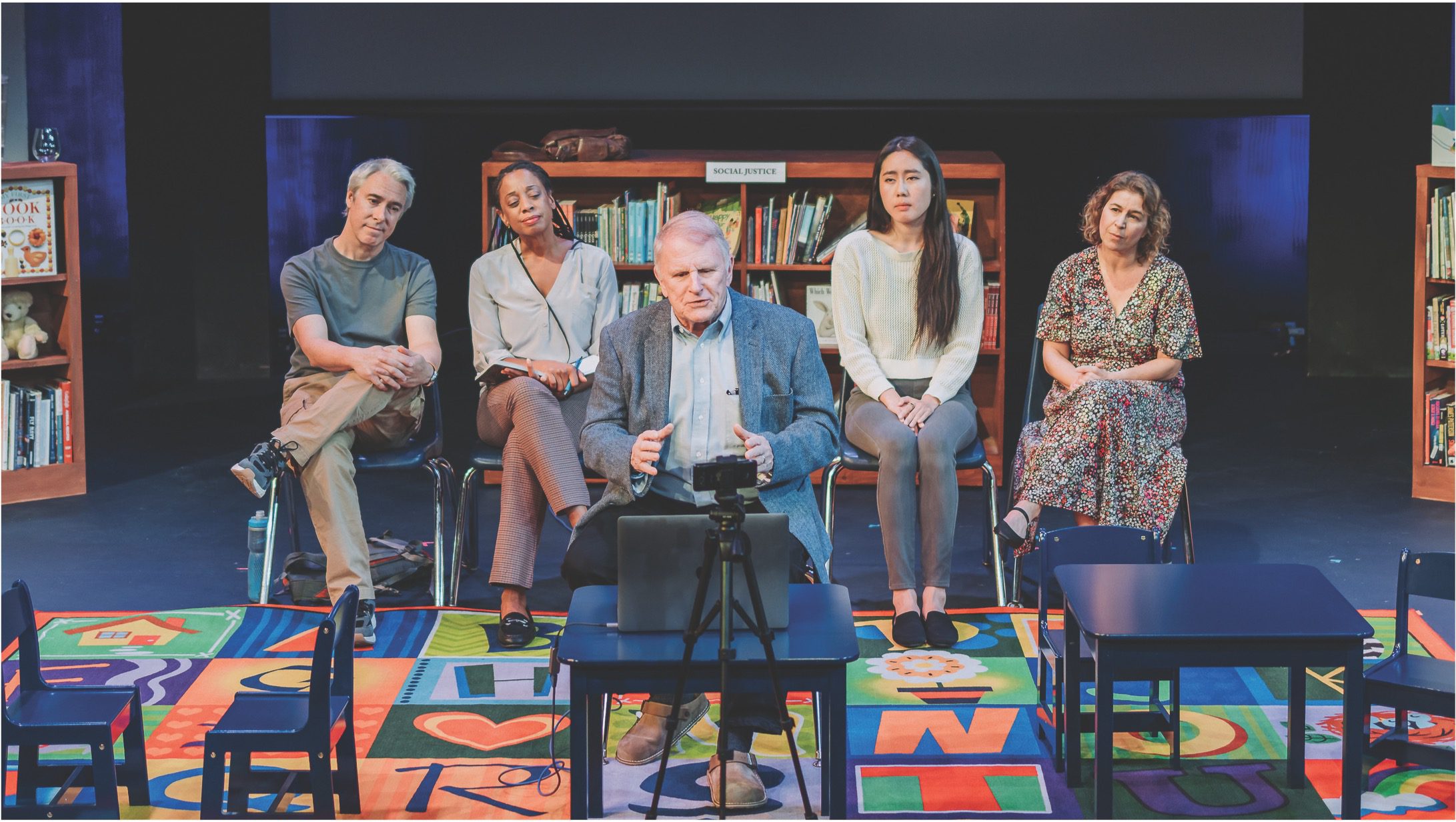
After solid performance in state qualifying round, Wasps’ golf season comes to an end

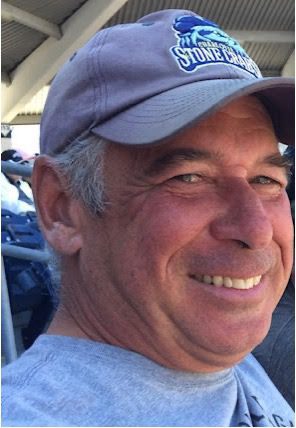

Governor’s executive order rekindles discussion and debate about our affordable housing crisis

Deterioration of systems at school is causing push for a bond vote in March
Recent Sports Scores


News
October 16
12:26 pm
Sen. Welch calls for rescue of American families by extending ACA Tax Credits
A typical family of four in Vermont making $130,000 will face a $22,000 spike in annual health care premiums if Republicans refuse to extend ACA subsidies
On the Senate floor this week, Vermont’s U.S. Senator Peter Welch, a member of the Senate Finance Committee, called on Republicans to come to the table and negotiate in good faith with Democrats to reopen the government and rescue hardworking Americans who rely on Affordable Care Act (ACA) tax credits to afford their health care. In his remarks, Senator Welch emphasized the urgency of extending the ACA subsidies, which help nearly 27,000 low- and moderate-income Vermonters access health coverage through the ACA marketplace.
“The question I have is: why don’t we, all of us—Republicans and Democrats—who care deeply about the people we represent really come to their rescue by acting, and acting now? There is absolutely no excuse for us to delay. This is the urgency of now. And I stand before you, Mr. President, knowing that right now, in my state of Vermont—from Bennington to Derby Line, from Brattleboro to Swanton—people are going to their mailbox and fainting as they get the news of these rate shocks,” said Senator Welch.
“It’s not right. But, most importantly for us, it’s not necessary, because we—the United States Senate—have the power to act and to be fair to the folks who are working hard in all of our states, and are entitled to have some confidence that the health care that they have this year they’ll continue to be able to afford next year.”
Welch said the tax credits are due to expire on December 31, 2025, resulting in rate increases and pushing affordable health care out of reach for millions of Americans.
Key excerpts from Senator Welch’s remarks:
“We’re going into day 15 of the shutdown. No one likes shutdowns…I don’t like shutdowns. But some things are worth fighting for. Some things we must fight for, and one of the things that is most essential to the well-being of the people we represent—whether it is a Republican state or Democratic state—is access to affordable health care. And we have a date that is looming: November 1st where people are going to be getting—across this country—notifications about how much of an increase they will have to pay if they are getting tax support; tax credits for them to buy their own insurance in the private marketplace. That is the urgency of the moment and why we must resolve this now. We must resolve this now.”
“All of us who have the authority of being in the United States Senate, and representing the people who sent us here, should not allow that rate premium shock to crush that family. By the way, this is not just this family in Vermont. This is families all across our country. You know, if these tax premiums, these tax credits expire—and that’s what they do—then we are going to see nearly 5 million people across this country, in your state and mine, lose their coverage. 24 million Americans will face higher costs.
“That includes about 17 million people in states that voted for President Trump—families in red states are going to see significant premium increases. But, you know, this is not about red state, blue state for me. This is about American families, American small businesses, and whether they can have access to affordable health care.”
October 16
6:55 am
Vote to fund wastewater facility renovations set for Town Meeting
The Woodstock Town Selectboard voted unanimously Tuesday evening to set a bond vote to fund renovations to the Woodstock Wastewater Treatment Facility for Town Meeting on Tuesday, March 3.
“The main wastewater plant needs renovation. [The plant engineers], Hoyle Tanner, [have said] that they are ready to go to work towards a Town Meeting Vote in March for the wastewater plant,” municipal manager Eric Duffy told a joint meeting of the selectboard and trustees at Woodstock Town Hall Tuesday night. “The timeline is basically this week to wrap things up, so if the town wants to go forward with the vote in March, they need the green light. If the vote can be delayed to another time, whether it is in the summer [at the primary election in August] or [at the general election] next November, that’s also okay. They just need to know so that we’re not spending money for them to gear up when we don’t need to,” Duffy added.
At a special meeting last week, the town selectboard members discussed the importance of aligning the wastewater plant bond vote with an already scheduled election. The selectboard at that meeting opted to put off a decision on choosing a date for the bond vote until Tuesday’s joint meeting with the village trustees. At the joint gathering this week, selectboard members discussed maximizing the use of staff resources by holding the bond balloting on the same day as an election that was already scheduled in 2026.
The last time that engineering firm Hoyle Tanner projected a potential cost for the plant renovations was in January 2023, when the price tag was estimated at between $20 and $25 million. At a meeting of the Woodstock Selectboard in December of last year, Hoyle Tanner regional business manager Jon Olin noted that construction costs had likely changed substantially in the preceding year. No new estimate of the present-day projected cost of the renovation project was offered at Tuesday evening’s meeting.
A controversial aspect of the selectboard’s Tuesday evening decision to set the wastewater plant bond vote for next March is the fact that MVSU administrators say they are on track to bring a proposed bond for construction of a new, regional “hub” high and middle school complex on the current WUHS/MS site before the voters in Barnard, Bridgewater, Killington, Plymouth, Pomfret, Reading and Woodstock on Town Meeting Day in March 2026 as well.
For more on this, please see our October 16 edition of the Vermont Standard.
October 15
6:55 am
Friends of East End Park are seeking endowment
During Tuesday evening’s Woodstock Board of Village Trustees meeting, local resident and Woodstock Community Trust trustee Emily Friedman spoke to the board about creating an endowment to protect the long-term maintenance of East End Park.
According to Friedman, there were three goals that led to the creation of East End Park and continue to guide volunteers and the trustee members moving forward — environmental restoration and enhancement of the intellectual integrity of the area, economic development, and community building.
Friedman then went on to address the current management of the park, stating, “The Woodstock Community Trust’s project — Friends of East End Park — operates as a means of raising funds to take care of and maintain the work accomplished constructing this park.” She said this is achieved through the Woodstock Community Trust’s 501 (c) (3) nonprofit status, which allows funds to be raised that are tax-deductible for those donating. Those funds are used to take care of the East End Park in conjunction with the town and village. “We are empowered to take care of the park through a memorandum of understanding with the town and village. We come to you today to talk about the idea of starting the East End Park Forever Fund.”
Friedman explained that this would be a pseudo-endowment assisted through the Vermont Community Foundation that would create a sustainable, long-term, consistent source of funding for the park. She added, a pseudo-endowment is an internal fund that an organization — such as a nonprofit or university — can set aside and invest in to function like a permanent endowment, but the principal can be spent with board approval.
Friedman said that a pseudo-endowment offers more flexibility than a standard endowment. “Rather than just getting a classic 5% yield every single year, we can decide to defer taking an annual amount and instead opt for a lump sum in ten years, which for our purposes would work out very well. Yearly maintenance can easily be managed and funded by our team and our work with the town and village, but our concern is for what could happen twenty years down the line. What if infrastructure collapses and we need to replace it? That is where this fund would come in. We anticipate having big expenses that aren’t necessarily predictable, and having an endowment that allows for flexibility would serve us very well.”
The selectboard gave its support for Friedman and the Friends of East End Park to continue pursuing this endowment.
For more on this, please see our October 16 edition of the Vermont Standard.
October 15
6:55 am
Governor’s executive order rekindles discussion and debate about our affordable housing crisis
Although it lacks the intensity and sweeping scope of the multitudinous and sometimes controversial executive orders issued by President Donald Trump since he returned to office in January, Vermont Gov. Phil Scott’s mid-September executive order to promote much-needed affordable housing in Vermont has raised concerns on the part of Democratic lawmakers and environmental advocates around the local region.
The executive order issued by Scott on Sept. 17 addresses regulatory barriers, permitting requirements and costs, and energy code standards associated with both new and rehabilitated or retrofitted housing projects in the state. Chief among the housing development issues addressed in Scott’s order are providing potential developers with the option of adhering to more relaxed residential energy standards enacted in 2020 as opposed to the latest benchmarks established by the state lawmakers in 2024; relaxation of wetlands regulations and shrinking buffers to 25 feet in designated growth areas such as downtowns and federal “opportunity zones”; directing state agencies to propose fee reductions for multi-family projects targeting medium-income families and allowing fee deferral until project completion; and speeding up the state’s notoriously slow permitting processes, including for Act 250 land-use permits and for appeals before such bodies as the Vermont Superior Court, Environmental Division, commonly known as the Vermont Environmental Court.
Critical reaction to Scott’s September executive order, which the governor deemed to be a vital decree issued in between biennial sessions of the Vermont Senate and House, was muted at first but has gained momentum as state lawmakers prepare to resume deliberations for the second half of the current biennium in Montpelier in January.
“For years, I’ve been sounding the alarm about the housing shortage in Vermont — and despite many agreeing, we haven’t done enough to make a real dent in the number of homes we need in Vermont,” Scott said in a media release that accompanied the executive order on housing last month. “This [order] addresses many of the challenges we’re seeing: [it is intended] to help developers and homebuilders so that we can make a dent in the number of homes we desperately need,” the governor offered.
Vermont House Democrats initially reacted to the executive order by issuing a statement stating, “While the Governor did not communicate with us prior to today’s executive order, we are encouraged to see the Governor join us in recognizing the need for urgent action” The statement also said that party leaders and elected officials would be reviewing the order to make sure it supports “the values of Vermonters,” including the protection of the environment. Despite the somewhat tepid initial response from the Democratic legislators, the question of the legality and constitutionality of Scott’s executive order on housing is now in the hands of the Vermont attorney general’s office, where deliberations are underway about whether Scott overstepped his authority within the state’s tripartite system of governance, which includes the executive branch, the legislature, and the judiciary, much as is true at the federal level.
“We are waiting for a memo from our legislative counsel on this topic,” Windsor State Sen. Becca White of Hartford said in a text message to the Standard last Saturday. “It is understood that the executive order may be unconstitutional by virtue of the separation of power issues that have not yet been detailed. I expect this will be a long situation.”
Windsor County Democratic State Sen. Alison Clarkson, who chairs the Senate Committee on Economic Development, Housing, and General Affairs, also weighed in on Scott’s executive order in a phone conversation with the Standard.
“I’m very disappointed that he felt he had to do this,” Clarkson said, referencing the governor’s September order. “I am fundamentally disappointed, given how productively we have worked together for the last three years on reducing barriers to housing. It just seems counter to a lot of our productive work together,” she continued.
Looking ahead to the next legislative session, Clarkson said she expects a robust discussion in Montpelier about the legality of Scott’s executive decree. No matter what transpires, that discussion is likely to help frame the continuing debate about housing issues and priorities during the four-month-long, 2026 legislative confab. “We still have huge issues,” Clarkson stated.
For our full story on this, please see our October 16 edition of the Vermont Standard.
October 15
6:55 am
Deterioration of systems at school is causing push for a bond vote in March
The persistent deterioration of 66-year-old environmental systems at Woodstock Union High School and Middle School (WUHS/MS) has prompted Mountain Views Supervisory Union (MVSU) officials to press for a new “hub” school bond vote on Town Meeting Day, Tuesday, March 3 of next year.
The most recent problems at WUHS/MS vexing MVSU director of buildings and grounds Joe Rigoli and school administrators include the failure of a backup boiler at the very outset of the Vermont heating season and repeated issues with significantly compromised cast-iron piping used to remove wastewater from the kitchen and cafeteria that serve both the high and middle schools in the aging complex on Amsden Way in Woodstock. Both the failed boiler and the underground piping serving the cafeteria date back to 1958, when the current WUHS/MS was built.
The infrastructure challenges at WUHS/MS come at a difficult juncture for school officials, not only within the seven-town MVSU district, but statewide. All of this is occurring against the backdrop of ongoing, sweeping education transformation in Vermont, including the proposed consolidation of well over 100 school districts in the state into a handful of much larger districts and continued discussion about how the state will fund new school construction moving forward.
Rigoli and MVSU school board chair Keri Bristow sat down Tuesday morning for a Zoom interview regarding pressing challenges facing MVSU administrators relative to the worsening conditions at WUHS/MS, which serves students from Barnard, Bridgewater, Killington, Plymouth, Pomfret, Reading, and Woodstock, as well as students from sending districts throughout the region that pay tuition to the school.
For our full story on this, please see our October 16 edition of the Vermont Standard.
October 15
6:55 am
Windsor museum nears fundraising goal for expansion
A museum in Windsor dedicated to precision manufacturing in the U.S. has neared its fundraising goal of $2.8 million; money that will be used to renovate the building’s second floor and expand its overall capacity by more than half of its existing size. The “Floor 2 the Future” campaign has already raised over $2.5 million toward the goal with a fundraising deadline of December 2026. With full funding, the building’s second floor — currently used for storage of museum collections not on display — will be expanded to include more educational space as well as a conference center for businesses and the larger community. The Gene Haas Foundation donated $1 million toward the campaign, and the new space will be called the Gene Haas Center for Manufacturing Inspiration.
The American Precision Museum is housed in the Robbins & Lawrence Armory in Windsor, a four-story factory built in 1846 beside Mill Brook. The building had initially been constructed by Samuel Robbins, Nicanor Kendall, and Richard Lawrence after needing a home for the 10,000 rifles they had acquired through a government bid. Today it is a site of education and innovation, celebrating and promoting all things related to precision manufacturing.
APM’s executive director, Steve Dalessio, spoke to the Standard about the museum’s history, purpose, and plans for the raised funds. “Prior to the 1840s, when something was built, it was built by hand, and there was no repeatability,” said Dalessio. “So every part that you made, or every product you made, was unique. What happened here at [the factory that became] the American Precision Museum was that the founders developed a process that allowed for machines to take over the manufacturing of parts — and, particularly, rifles. So all the parts became interchangeable. They became repeatable and precise.”
This kind of technological innovation is still happening today, and not just for firearms. While in the past, precision manufacturing helped produce things like sewing machines and typewriters, it now produces parts for smartphones, surgical equipment, and aircraft engines – just to name a few. Dalessio addressed the common, lingering misconception that manufacturing is “dark, dirty, dangerous, and dull.”
“Manufacturing facilities are leading the way in sustainability,” he said. “They’re clean, they’re high-technology. There’s all kinds of things that didn’t exist 25 to 50 years ago. Of course, AI is starting to creep into manufacturing as well. It’s just an exciting time.”
For more on this, please see our October 16 edition of the Vermont Standard.
October 15
6:55 am
Local insurers announce plans to drop Medicare Advantage in 2026
After several more private health insurers — Vermont Blue Advantage (an affiliate of Blue Cross and Blue Shield Vermont), MVP, UnitedHealthcare, and Centene-subsidiary Wellcare — have recently announced they will drop Medicare Advantage plans from their offerings by the end of the year, many Vermonters are scrambling to find next steps toward solidifying health care by 2026. According to the federal government’s Centers for Medicare and Medicaid Services, over 51,000 Vermonters were enrolled in Medicare Advantage programs as of the month of September. The lone provider who will continue its Medicare Advantage plan in Vermont is Humana — though strictly in the counties of Bennington, Caledonia, Essex, Orange, Windham, and Windsor.
This week, Sam Carleton, who serves as director of resource navigation for the nonprofit Age Well, an advocacy group for the aging population of northwestern Vermont, spoke to the Standard about Medicare Advantage, what the decrease in insurers offering the plan means, and what Vermonters can do next. Carleton also serves as a statewide director of the SHIP Program (State Health Insurance Assistance Program).
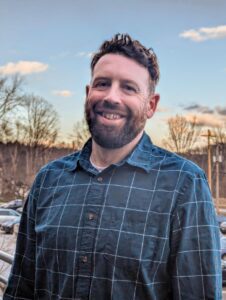
Sam Carleton
For more on this, please see our October 16 edition of the Vermont Standard.
October 15
6:55 am
Village needs to replace parking meters
On Tuesday, Woodstock municipal manager Eric Duffy told the board of village trustees that the parking meters installed throughout the village streets will likely have to be replaced within a year.
“Someone has brought to my attention that the company we use for our parking meters has gone out of business. This means that any internal parts we would need in order to keep those machines up and running will be unavailable. I know this is a touchy subject, but it is important to begin the discussion of what we want to do with these meters. Do we want to replace them? Install more kiosks? We need to start discussing now so in a year, we have a plan in place to either buy from a new vendor, upgrade to a higher tech option, or transition to an app-based system,” Duffy said.
In January of 2021, the board installed new parking meters after voting on the specific model in 2020. One hundred and sixty-six failing parking meters were replaced with single- and multi-space pay stations purchased through Integrated Technical Systems (ITS) of Wallingford, Conn. The company supplied and installed the meters at a total cost of $122,164. The meters allowed for both coins and card to be used.
Kiosks were also installed at that time that allowed for the use of a mobile parking app. These machines came from The Luke Cosmos Multi-Space Pay Station, manufactured by T2 Systems in Indianapolis, Ind.
At this week’s meeting, the trustees discussed whether to transition entirely to kiosks, to try to use the meters as long as possible, or to move to a digital app-based program. Duffy said he could not confirm how much time remained before the meters ceased to work. “It could be six months or ten years, there is just no way of knowing,” Duffy said.
For more on this, please see our October 16 edition of the Vermont Standard.
Features
October 15
6:55 am
Shaker Bridge production of ‘Eureka Day’ reminds us exactly why theater is so essential
The Shaker Bridge Theatre’s production of “Eureka Day” is currently at the tail-end of its run at the Briggs Opera House in White River Junction, with one final weekend of performances slated for Thursday, Oct. 16 through Sunday, Oct. 19. This play, written by Jonathan Spector, set in the fictional Eureka Day School in Berkeley, Calif., opens on a school board meeting. Comprised of five members who represent a bastion of progressive ideals, dialogue immediately erupts into conversations of inclusivity, diversity, and acceptance — as each board decision can only be reached through a consensus.
When a mumps outbreak threatens the Eureka community, confrontation ensues as these five characters grapple with essential questions of individual belief versus community survival, attempt to distinguish fact from opinion, and ultimately strive to answer the essential question: How can a community establish a consensus when truth becomes indiscernible?
Comprised of sharp-witted humor and painfully human confrontation, “Eureka Day,” forces the audience to question their own beliefs on vaccination policies, school mandates, and the duty one has to the community in which they live. This play eventually transcends all debate to hit on something true and universal. Empathy for the human condition, in every form, is on full display in the Briggs Opera House — the goal for director Bill Coons.
Coons, founder and creative director of Shaker Bridge Theatre, told the Standard, “I think this play is exploring what it means to try and construct something based on your humanity. The idea of a consensus is wonderful, but perhaps the fundamental nature of human beings prohibits the possibility of a fair and just consensus. This play takes hold of humanity and cracks it open to see what is inside achieving such a feat through humor and compassion.”
The timeliness of this play’s content — from vaccination mandates to quarantine to Zoom meetings where parents feel the virtual freedom of saying anything that comes to mind, no matter how vile — was not lost on actor Jammie Patton, as she told the Standard. “To think the fact that Jonathan Spector wrote this play pre-COVID is astounding. Vaccinations have been a debate for years, but the way Spector writes of this, exploring all sides and angles of the conversation, even made me begin to question my own personal beliefs. We are individuals in this country; we have freedom of choice. However, within that individualistic mentality, we still have an obligation to care and protect our community. ‘Eureka Day’ incites a very interesting debate. It pushes back on a dialogue we thought we have all heard before, and through that, a new kind of truth is uncovered on the stage.”
For those wishing to have their perspectives challenged, their thoughts broadened, and their hearts expanded, look no further than Shaker Bridge Theatre’s “Eureka Day.” Be sure to catch the final run of shows this weekend. More information and tickets can be found at shakerbridgetheatre.org.
For more on this, please see our October 16 edition of the Vermont Standard.
October 15
6:55 am
Barnard will be a haunted village this weekend
BarnArts Center for the Arts’ Haunted Village Theater will again take place this Saturday in Barnard, as executive director Linda Treash works alongside talented local artists to bring five scary stories to life.
“I first conceived of this idea four years ago as a means of counteracting the isolation of the pandemic,” Treash told the Standard. “BarnArts has always been an incredibly nimble and flexible theater, learning to perform in any place outside of the stage. As fall 2021 approached, I wanted to do one last great show for the community and for the actors who could not participate in theater during the winter months. It originated from the concept of telling spooky stories around a campfire and has since grown from there.”
BarnArts will stage five short theatrical scenes around the village this year. Each story will be different, ranging from five to 15 minutes in length. When attendees arrive, they will be escorted from scene to scene, ending at the Barnard Fire Station, before returning to the town hall, where a warm meal will be available. “We will have tour guides to lead each group, dressed in costume and guiding with intent,” Treash explained. “[Attendees] will start at the Barnard Town Hall. The first story takes place in the old apple orchard planted out back, where something sinister may be lurking in the dark.”
Treash explained that the first story follows two modern influencers grappling with a visit from the supernatural. She continued, “From there, we will walk down to the village center, across from the Barnard General Store, where the Lady of Silver Lake will be waiting for us.”
Tours will commence every 30 minutes, with the first tour beginning at 5 p.m. Fire pits will be stationed at each site. Early evening tours are rated “family friendly” and will be most suitable for young children.
For more on this, please see our October 16 edition of the Vermont Standard.
October 15
6:55 am
West Windsor tiny house project is offically complete
By Emma Stanton, Staff Writer
Ascutney Lofts — a collection of five tiny houses off Route 44 in West Windsor — are officially complete, with rental bookings to be available in October. The West Windsor residents, who built the tiny houses, Mark Morse and Yulia Moskvina, sat down with the Standard recently to discuss the project.
“The construction was very inspired by European models of small living,” Morse began, as the couple spoke about their time traveling across the continent, even staying in a tiny home in Iceland before embarking on their own construction journey. “There is just something about European design,” Moskvina added. “Their homes always feel spacious, open, environmentally conscious. Europeans seem to have perfected the minimalist style of comfortably existing in a small space. We wanted to echo that here in our Ascutney Lofts.”
The Ascutney Lofts cabins are on the edge of Brownsville at the base of Mt. Ascutney. Each home is complete with heated floors, a living room and kitchen, a bathroom, a master bedroom, and an upstairs loft. “The floors are heated,” Morse told the Standard. “The kitchen is in a modern, European aesthetic, fully equipped for both functionality and style. We installed modern appliances, quality cookware with all the essentials — refrigerator, dishwasher, convection oven — even sharp knives and wine glasses.” The first floor continues into the master bedroom and a small, yet spacious bathroom. “Since the space is so small, we wanted to make sure every single piece was intentionally crafted and allowed for our guests to experience a quiet, simple form of luxury,” Morse continued. “From a heated towel rack in the bathroom to the farm-raised European beechwood that lines the staircase, every component works to create a holistic experience.”
Morse and Moskvina used Shou Sugi Ban cedar for the exterior construction. This type of wood is often found in traditional Japanese homes and is known for its durability and weather resistance, due to the technique of charring the cedar and then sealing the wood with oil to protect against moisture, fire, and insects. “Homes built with this wood in Japan have stood strong for thousands of years,” Moskvina added. “We decided early on that if we were going to build these tiny homes, we wanted them built right.”
Each home also comes with a small back patio complete with a pair of outdoor chairs, a smokeless fire pit, and a grill. “Soon a little path will be built on the land leading to a natural watering hole,” Morse said.
Ascutney Lofts also offers the convenience of on-site EV charging, making it easy for guests with electric vehicles to power up during their stay and demonstrating another way Moskvina and Morse have combined modern amenities with thoughtful, eco-conscious design.
Moskvina, a nurse at a local hospital, and Morse, a building contractor, have dedicated a lot of time and resources to these small lofts. “It has been a long time coming,” Moskvina said. “We are just so grateful that each delay and setback we encountered was able to be overcome, and that we are able to provide medium-term rentals to people, allowing them to experience a piece of this land we call home.”
Morse and Moskvina were awaiting their final round of permits, as Ascutney Lofts seeks to become a lodging establishment — offering travelers an opportunity to stay up to three months. Each tiny home sleeps a maximum of four people. Booking, once available, can be completed through ascutneylofts.com.
October 15
6:55 am
Tribou Park protests reach 250 consecutive days
Members of the greater Woodstock community who have been demonstrating at Tribou Park against Trump administration actions on healthcare, immigration, due process, and more, marked their 250th consecutive day of protest on Tuesday, October 14. The group estimates that they have dedicated approximately 5,000 hours to the effort since the beginning of this year.

Betz Haartz, left, and Courtney Hollingsworth hold signs at Tribou Park on Tuesday.
Rick Russell Photo
October 13
6:55 am
Annual Apples & Crafts Fair took place last weekend
This year’s Apples and Crafts Fair and Food Truck Festival featured more than 100 juried crafters, artists, and food trucks in Woodstock last Saturday and Sunday, with proceeds from ticket sales benefitting the Woodstock Recreation Center.
Rick Russell Photos
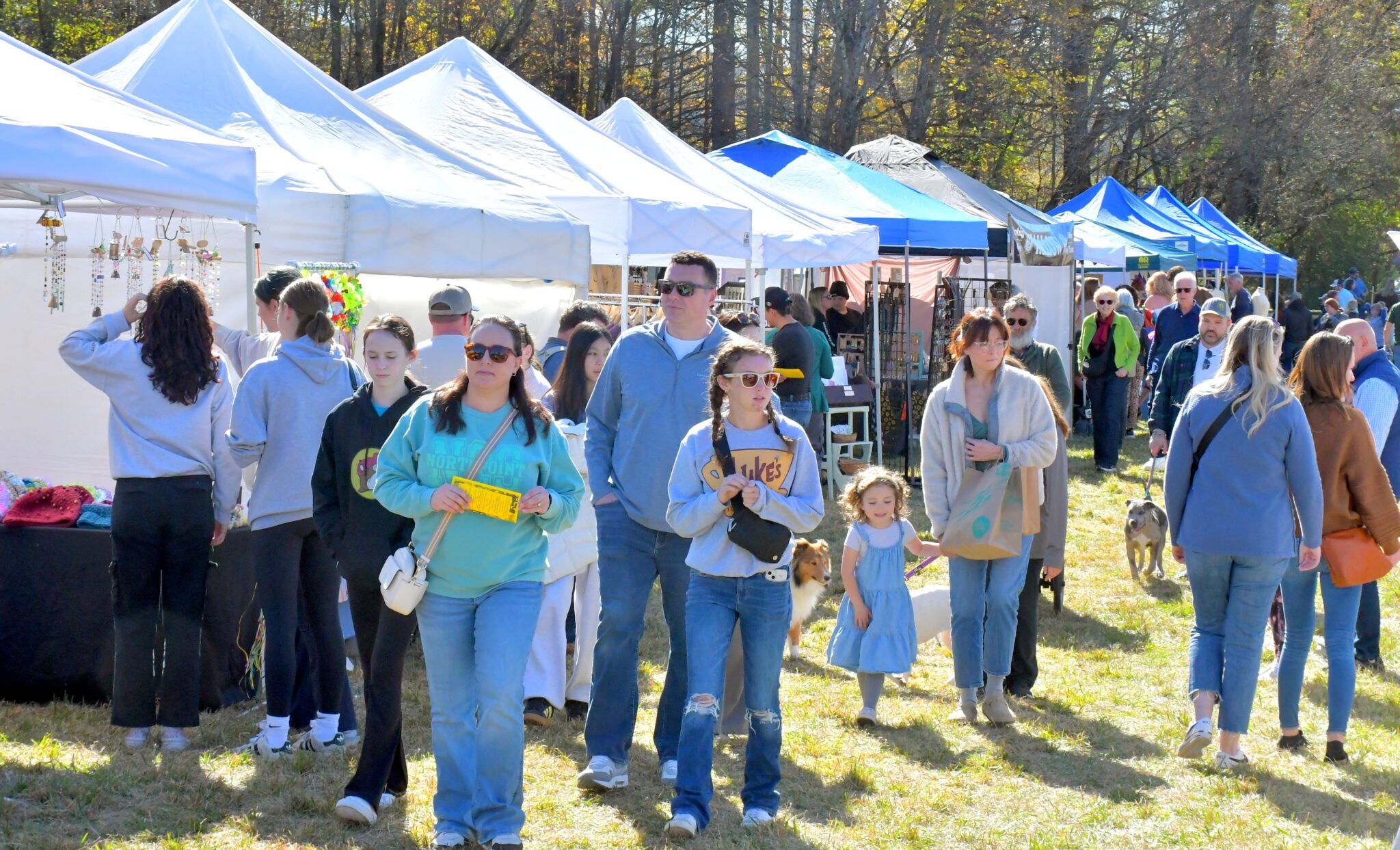 Saturday’s crowd explores vendor offerings at booths lining both sides of the Green.
Saturday’s crowd explores vendor offerings at booths lining both sides of the Green. Abigail Schmais experiments with jewelry making at her mom’s booth, Adrienne’s Metals.
Abigail Schmais experiments with jewelry making at her mom’s booth, Adrienne’s Metals.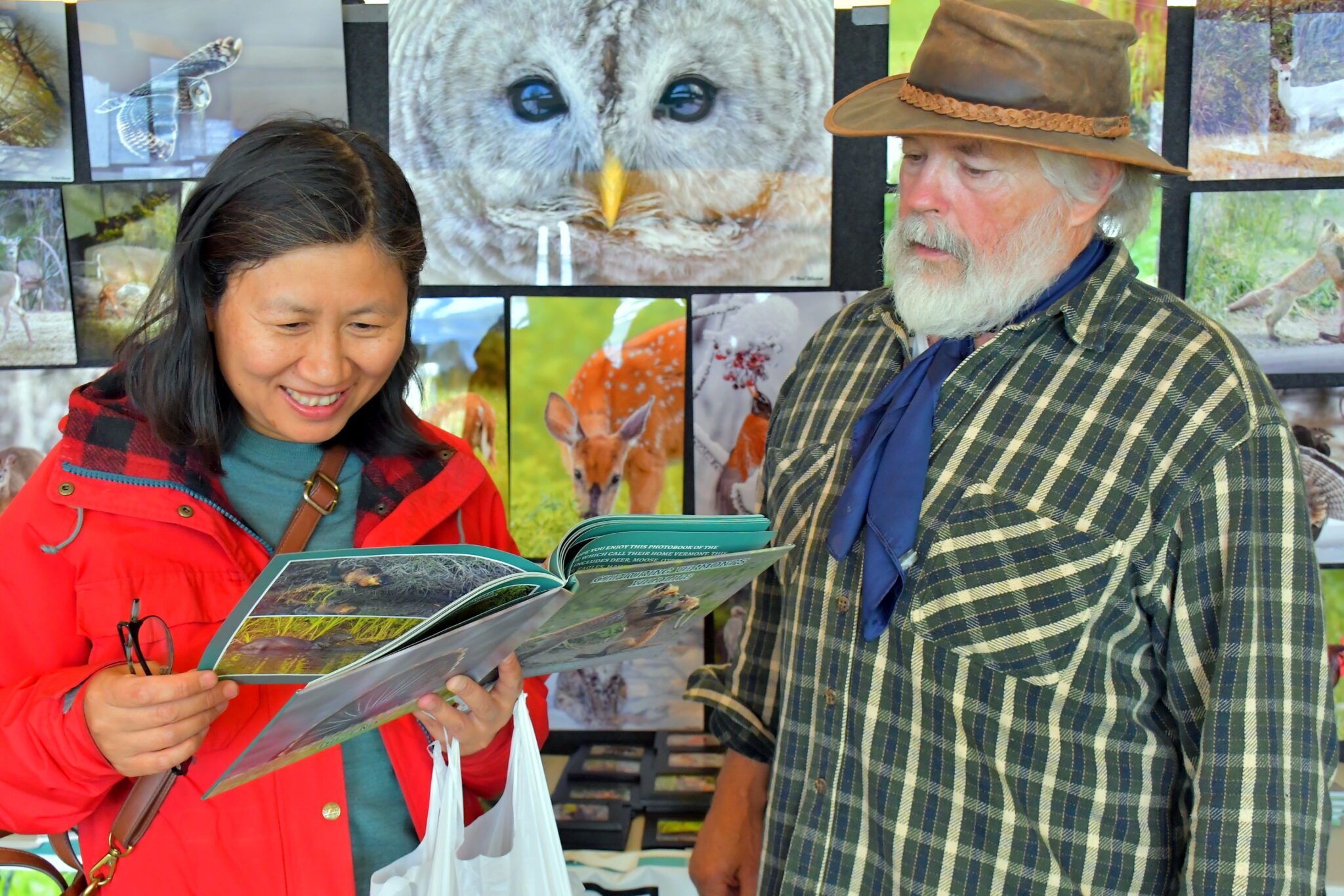 Rachel Sun, of Barnard, and photographer Paul Blossom, of Braintree, look through a copy of his book, “Capturing Vermont Wildlife.”
Rachel Sun, of Barnard, and photographer Paul Blossom, of Braintree, look through a copy of his book, “Capturing Vermont Wildlife.” Rohith Dumpala and his cat, Arya, peruse vendor offerings on Sunday.
Rohith Dumpala and his cat, Arya, peruse vendor offerings on Sunday.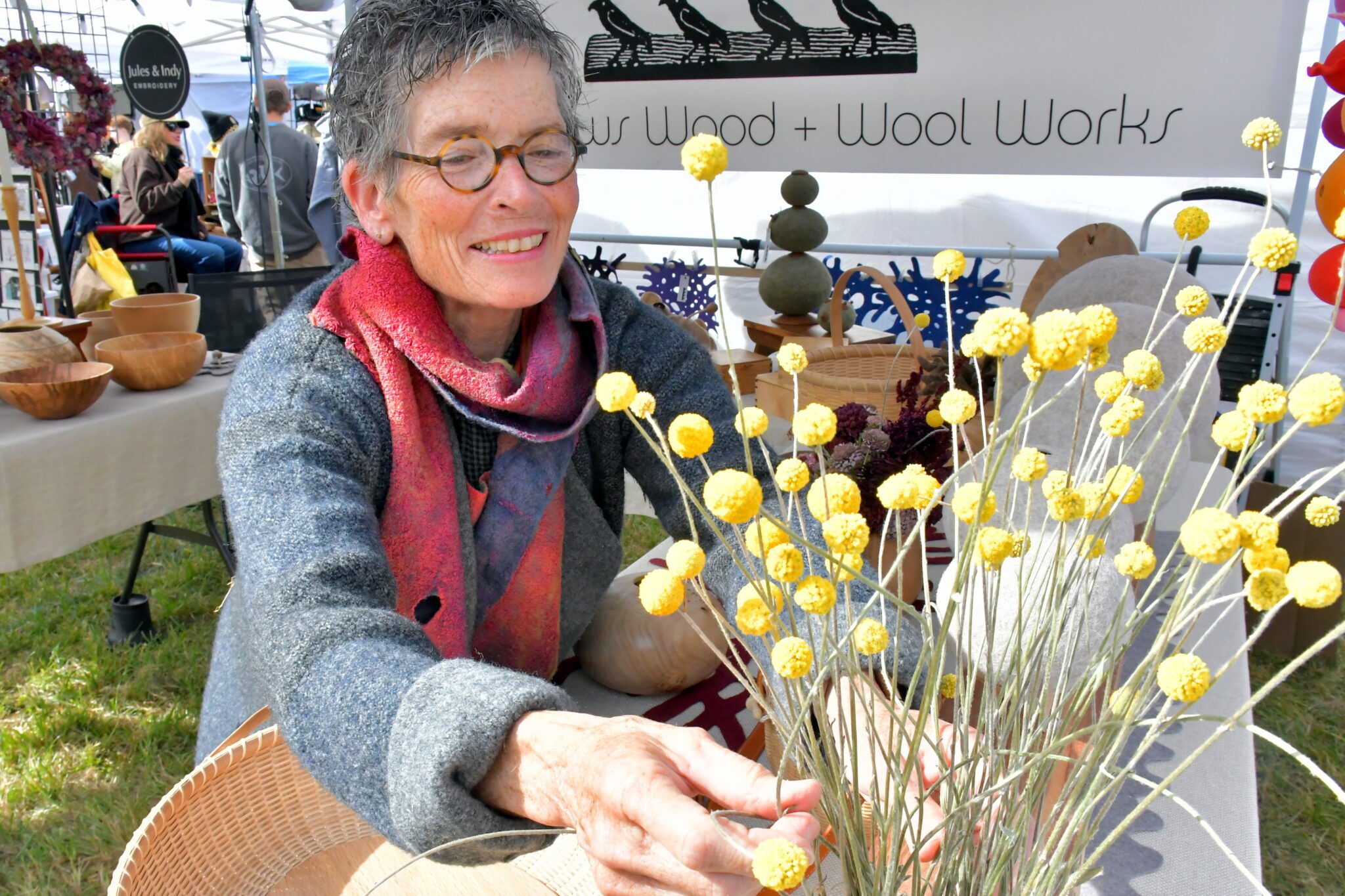 Melinda Evans of Four Crows and Wool Works, from Barnard, arranges flowers decorating her booth.
Melinda Evans of Four Crows and Wool Works, from Barnard, arranges flowers decorating her booth. Zella Little and Rosemary Hughes sell food at the varsity hockey fundraising booth on Sunday.
Zella Little and Rosemary Hughes sell food at the varsity hockey fundraising booth on Sunday.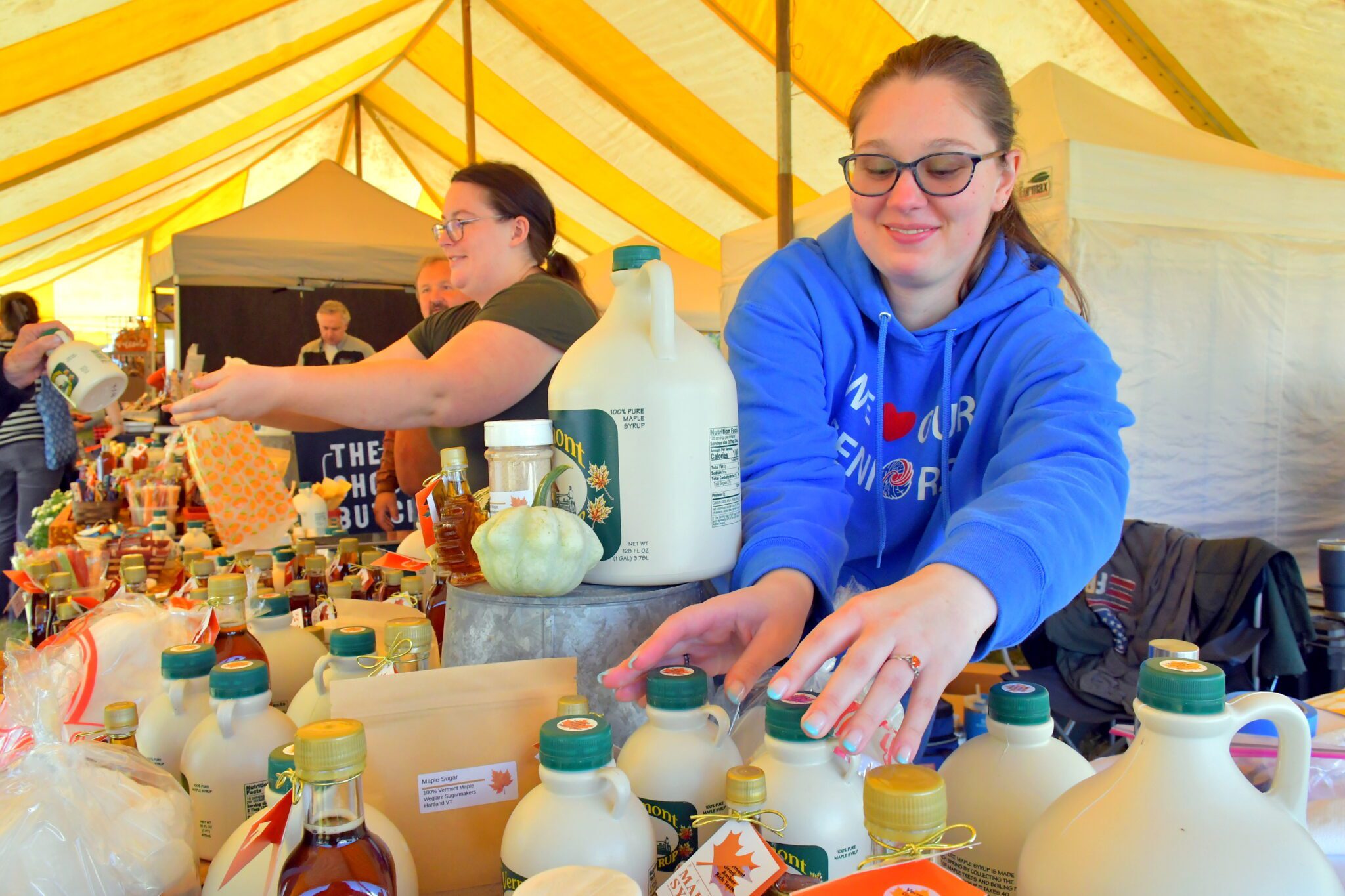 Nicole Harrington restocks maple syrup at the Weglarz Sugarmakers booth.
Nicole Harrington restocks maple syrup at the Weglarz Sugarmakers booth.
Sports
October 17
5:38 pm
Woodstock Field Hockey wins 2-0 on Senior Night
On Thursday, the Woodstock Wasps took down the visiting Hartford Hurricanes 2-0 on field hockey’s senior night.
The teams dueled to a scoreless first half before a goal from Woodstock’s Grace Perreault late in the third began the scoring.
The Wasps’ Marley Olmstead hit the back of the net in the fourth to give Woodstock the 2-0 win.
The Wasps finish the regular season at 10-4-1 and await their playoff pairing.
October 15
6:55 am
After solid performance in state qualifying round, Wasps’ golf season comes to an end
By Tyler Maheu, Staff Sportswriter
“The goal is to grow the game, and I think we accomplished that,” said first-year head coach Chris Bradley following the conclusion of the Woodstock Wasps’ 2025 golf season.
While the Wasps only won one overall match this year, they were always in the hunt, finishing with several second and third places at matches around the state. Woodstock alumnus Bradley recalled their win as his favorite memory of the season. “We got our win at Green Mountain National in Killington,” he said. “Everybody played really solid golf and we took the win on a tough course.”
On Tuesday, Sept. 30, Woodstock traveled to Swanton’s Champlain Country Club for the Vermont state championship qualifier. While all teams can attend, only six advance to the season’s finale. Sadly for the Wasps, they finished in ninth. “It was a tough day out there, I think everybody had a little bit of nerves,” he said. “Everybody played well, though, and kept their heads up. A ninth-place place out of 20 teams was a solid performance. Not disappointed in how we ended at all.”
Bradley’s individual standout for the season was senior Kyler Eaton. “Overall, he played a really great season and scored well in matches,” said the head coach. “He had a successful year as a top performer.”
This season was Bradley’s first year at the helm of his alma mater, and he went in-depth on his experience. “Overall, it was a great experience,” he said. “I had a great group of guys who were willing to put up with my learning curve.” He added that he appreciated that players were willing to listen to him and learn from him as a coach instead of a peer in spite of their close ages.
One aspect of the job that surprised him was how much work happens behind the scenes. “As a player, you are told when and where to go, then you grab your gear and get on the bus,” he explained. “As a coach, you don’t realize how much communication goes on behind the scenes between you and the school, the other coaches, the transportation.” He praised his fellow coaches in the Southern Vermont League for their willingness to guide him. “All the other coaches from the SVL were awesome,” he said. “They gave me lots of tips and pointers that were a big help.
Bradley remains undecided on next season as he considers the possibility of attending college, but said, “I’d love to return for a second year if that doesn’t work out.”
“Overall, I had a lot of fun,” he stated. “It was a great group of kids, and I loved getting back into competition as a coach.” Bradley continued his praise of the team. “I’m super proud of everyone who played this year, even the ones that didn’t play in competition. I’m just glad we got people outside and enjoying golf.”
October 15
6:55 am
Wasps' football shut out Springfield 38-0 last week
October 11
11:45 am
Boys Soccer falls to Randolph 4-1
On Saturday, the Wasps boys soccer team hung tough with the visiting Randolph Ghosts, but a rough second half led to a 4-1 defeat by the end of the game.
Randolph scored early off the foot of senior Antonio Reyes to go up 1-0. A penalty kick score from Woodstock senior Oliver Boswell knotted the game at one-all.
The wheels fell off in the second half for the Wasps, as they allowed three unanswered goals by the Ghosts and took the loss, 4-1.
The defeat drops Woodstock to 1-11 on the year.
Obituaries
October 15
6:55 am
Paul “Big Wogs” Eldredge
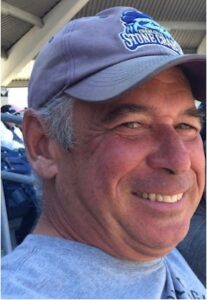 On Oct. 9, Paul “Big Wogs” Eldredge, 74, lost his fight with a long illness and is now at peace. Born Feb. 7, 1951, Paul was the first child of Glenn and Shirley (Blackmer) Eldredge. He worked on his grandfather’s farm where he would raise Morgan horses and win many awards showing “Chief of Stockbridge” and “Coco.” These were fond memories cherished by Paul.
On Oct. 9, Paul “Big Wogs” Eldredge, 74, lost his fight with a long illness and is now at peace. Born Feb. 7, 1951, Paul was the first child of Glenn and Shirley (Blackmer) Eldredge. He worked on his grandfather’s farm where he would raise Morgan horses and win many awards showing “Chief of Stockbridge” and “Coco.” These were fond memories cherished by Paul.
Paul graduated from Whitcomb High School in 1969 and married his high school sweetheart, Charlene Cook in August of that same year. They welcomed their daughter, Tracey in October 1969, a son, Paul in May 1973 and a son, Colby in October 1979. His family was his whole world. He was a fierce competitor who did not like to lose in any game, whether that was cards, board games or sports. Paul enjoyed family and friends gatherings that were a regular weekend occasion at his home in Quechee.
Paul worked for Killington, Ron’s Citgo and C.V. Oil before becoming a mail carrier in Woodstock delivering to the many small businesses and families on his route for 33 years. Paul loved to interact with his customers and made many memorable relationships.
Paul was a baseball enthusiast who started a Pee Wee program in the town of Pittsfield in 1974 and then a Little League program in order to coach his children. He was a lifelong Red Sox fan and even visited all 30 baseball stadiums with his wife in his retirement. For his 50th birthday, Charlene surprised him with tickets to Super Bowl XXXV, another bucket list entry. They were both drawn to the Ocean waters and relocated to Port Charlotte in 2015. He enjoyed playing golf in his spare time and achieved a hole in one on May 12, 2022 at the Maple Leaf Estate golf course.
Paul is predeceased by his parents, Glenn and Shirley Eldredge of Stockbridge, Vt. He is survived by his wife of 56 years, Charlene; his three children, Tracey (Gene) Soboleski of Hartford, Vt., Paul II (Lisa) of Woodstock, and Colby (Brittany) of Pasadena, Md. Paul’s sister Charlene (Steve) Anderson lives in Barre, Vt. Paul enjoyed spending time with his eight grandchildren Michael, Zachary, Tyler, Cameron, Bryce, Lucas, Lola and Hunter. Paul has one great-granddaughter Zaylee. Paul leaves behind many wonderful friends in Florida and Vermont who have supported him and Charlene throughout this devastating disease.
A celebration of life will be held in the summer of 2026 for his many family and friends.
October 8
6:55 am
David Lester Adams
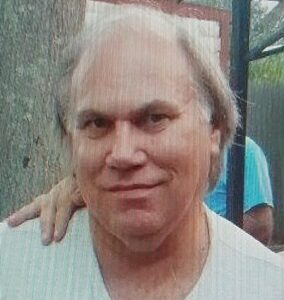 David Lester Adams, 70, died on Sept. 10, 2025 at the Dartmouth Hitchcock Medical Center in Lebanon, NH peacefully, attended by his long time partner Wanda Reifenberger of Bridgewater, VT.
David Lester Adams, 70, died on Sept. 10, 2025 at the Dartmouth Hitchcock Medical Center in Lebanon, NH peacefully, attended by his long time partner Wanda Reifenberger of Bridgewater, VT.
David was born Jan. 5, 1955 to Velma (Bell) Adams and Lester E Adams of Woodstock, VT. David was a graduate of Woodstock Union High School, class of 1973. David entered the culinary field in 1975 working for the Woodstock Inn. He traveled west to Omaha, NB in 1977 where he honed his skills for a private club. In 1979 he was married to Jan Olsen of Omaha, NB. They traveled to Phoenix, AZ in 1979 where he became the sous chef for the Camelback Inn in Scottsdale. In 1986 they moved to Tucson, AZ where David worked for a private golf club. There, he was written up in Bon Appetite Magazine for his culinary skills, making the front page of the magazine.
David liked cooking, auto racing, playing the saxophone, and the acoustic guitar.
Survivors include brothers Jeff Adams of Woodstock, VT, Greg Adams of Coco Beach, FL, and Richard Adams of Woodstock, VT. Sons Bradley, Brian, and Benjamin all of Minneapolis, MN. Also 5 granddaughters and 2 grandsons.
A memorial visitation will be held at the Cabot Funeral home in Woodstock, VT on Oct. 17, 2025 from 4 p.m. to 6 p.m. A private burial will be held at the Prosper Cemetery at a later date. Donations in lieu of flowers can be made to the Thompson Senior Center.
An online guestbook can be found at cabotfh.com.
October 8
6:55 am
Robert “Bobby” L. McCredie, Jr.
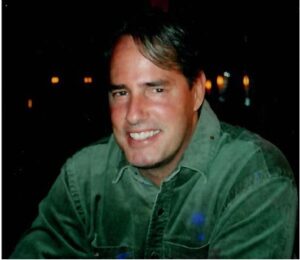 Robert “Bobby” L. McCredie, Jr. passed away on Sept. 16, 2025, in Costambar, Dominican Republic, after a long illness. He was 65 years old.
Robert “Bobby” L. McCredie, Jr. passed away on Sept. 16, 2025, in Costambar, Dominican Republic, after a long illness. He was 65 years old.
Born in Red Bank, New Jersey, Bobby was the son of Elizabeth J. McCredie and Robert L. McCredie, Sr. He spent his early childhood in Rumson, N.J., before the family moved to Barnard, Vt., in 1969 — fulfilling his father’s dream of raising the family in the Green Mountain State.
Bobby thrived in Vermont, where he developed a passion for athletics and the outdoors. He ski raced for Mid-Vermont, played high school football, and became a top-ranked tennis player while attending the University of Vermont. His talent on the court led him to compete professionally in the French and U.S. Penn tennis circuits in the early 1980s.
After his time abroad, Bobby returned to New Jersey and pursued a successful career in financial services, working as a broker for several firms and specializing in financial planning, mutual funds, and tax-deferred annuities.
In 2004, Bobby made a bold life change to follow his true passion — surfing. He moved to Nicaragua, where he built a home and embraced the coastal lifestyle. In 2018, he relocated to the Dominican Republic, continuing to enjoy the ocean, surfing, and tennis in the vibrant community of Costambar. Bobby had many friends both in the U.S. and abroad, and was known for his sharp sense of humor, adventurous spirit, and deep love for his family. He stayed in regular touch by phone and was especially generous with gifts on his visits home.
Bobby is lovingly remembered by his sisters, Karen Zaretzky of Mendon, Vt., and New York City, and Sue McLaughry of Norwich, Vt.; his nieces, Emily and Paige McLaughry; and his brothers-in-law, Robert McLaughry and Ron Zaretzky.
A celebration of Bobby’s life will be held in the spring of 2026.
October 8
6:55 am
William A. Smith
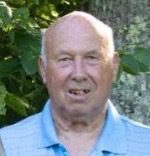 William A. Smith, 78, died at his home on Thursday, September 25, 2025. He was born on January 2, 1947, in Springfield, Vt., to Robert A. and Marion D. “Molly” (Chesley) Smith. His early education took place in the Amsden one-room schoolhouse; his later elementary years were at the new school in Perkinsville. He graduated from Springfield High School in 1965. He earned an associate degree from Albany Business College, which prepared him for his career in banking and credit finances. He also attended Paul Smith College for forestry.
William A. Smith, 78, died at his home on Thursday, September 25, 2025. He was born on January 2, 1947, in Springfield, Vt., to Robert A. and Marion D. “Molly” (Chesley) Smith. His early education took place in the Amsden one-room schoolhouse; his later elementary years were at the new school in Perkinsville. He graduated from Springfield High School in 1965. He earned an associate degree from Albany Business College, which prepared him for his career in banking and credit finances. He also attended Paul Smith College for forestry.
He and his first wife, Sandra, started their family in Bennington, but soon moved to Charlestown, N.H., built a home, and Bill was a committed member of the community. He was a part of many of the local sports programs, coached hockey, soccer, basketball, and baseball, and scheduled most of the games for PVA hockey. He often gave rides to and from to ensure that transportation was never a limitation to participation. He and Sandra separated around 1985 but remained close friends, coworkers, and coparents to their sons, Mike and Pat. In 1990, Bill moved to Langdon, N.H. In 1995, he married Denise Bushway and welcomed her son Jeremy into the family. A few months later, Molly was born.
Bill adored his family, and they spent as much time together as possible. He attended every game or event that his children or grandchildren were involved in (or watched it on TV/online), helped to watch the grandchildren after school, and was overjoyed to spend almost every day with Ira. In the winters, he would ski with his parents and brothers at Mt. Ascutney and Tuckerman Ravine. Later, he would ski with Molly at Arrowhead. In the summers, they enjoyed camping between games and practices.
Bill was an excellent and detailed storyteller and family historian. One of his favorite stories was of his and Pat’s trip to Alaska. They drove the entire state, visited relatives along the way, and were immersed in the beauty and wonder of the place.
Bill is survived by his wife Denise M. Smith of Weathersfield; four children Mike Smith and wife Amy of Essex, Vt., Pat Smith and wife Ashley of Weathersfield, Molly Smith of Charlestown, N.H., and Jeremy Thompson and wife Casilyn of Charlestown; two brothers Mitchell Smith and wife Cindy of Saranac Lake, N.Y. and Vincent Smith of Zephyrhills, Fla.; his former wife Sandra Smith of Claremont, N.H.; five grandchildren Jason, Abbigale, Regan, Morgan, and Ira; other relatives and friends.
He was preceded in death by his parents.
A graveside service will be held in Ascutneyville Cemetery at 11:30 a.m. on Sunday, October 12. Memorial donations may be made to your local youth sports teams. Knight Funeral Home of Windsor, Vt., has been entrusted with arrangements, and online condolences may be expressed at knightfuneralhomes.com.
October 8
6:55 am
Andrea Brehmer de Trzaskos
 Andrea Brehmer de Trzaskos, 54, passed away at her home in Stockbridge, VT, on Tuesday evening, Sept. 30, 2025. Andrea was independent, fiercely intelligent, a sharp analyst and adept problem solver, curious, witty, creative, and kind with a radiant smile.
Andrea Brehmer de Trzaskos, 54, passed away at her home in Stockbridge, VT, on Tuesday evening, Sept. 30, 2025. Andrea was independent, fiercely intelligent, a sharp analyst and adept problem solver, curious, witty, creative, and kind with a radiant smile.
Andrea was born in Waimea, Kauai, Hawaii, on Feb. 2, 1971, to Margaret Enking and the late Gale Brehmer, who worked for NASA’s tracking station during the Apollo missions and then at the celestial observatory at Mauna Kea. In 1978, they moved to La Serena, Chile, for Gale’s work at the new observatory at Cerro Tololo. Andrea’s formidable intellect was apparent early on and grew quickly among some of the world’s foremost resident and visiting astronomers, as neighbors. She learned to ride horses in the Chilean desert and became a lifelong lover of all animals. With Hawaiian Pidgin as her first language and Spanish as her second, Andrea began her primarily English learning during her middle and high school years in Meridian, ID, supplementing her studies with university courses. She chose to attend Wellesley College, where she could also take classes at MIT, and graduated with a BA in Economics. She met her future husband, Todd Trzaskos, while training martial arts at Shobu Aikido of Boston.
Andrea moved to Vermont, where Todd resided, the week before Labor Day 1994. They were married a year later. Andrea’s first work in the area was in retail at the Woodstock Farmers Market, and she soon after became the international sales manager at Wild Apple Graphics. She then completed the Vermont Master Gardener program and returned to the WFM to build out their garden center while also running her own business tending fine gardens around Woodstock. She was one of the first women to join the Woodstock Volunteer Fire Department, where she served as Auxiliary treasurer. She devoured books of all kinds and completed a three-year Certified Financial Planner course in nine months with a 94-point average. Andrea worked for Bill Lewis’ law office, doing trust and estates for several years, and professionally offered private financial administrative support services. During the COVID pandemic, she answered the call at the Woodstock Farmers Market once again to take on a key bookkeeping role.
For over 15 years, Andrea also dedicated herself to discovering and developing her talents as a self-taught ceramic artist, creating pieces inspired by her appreciation of nature and bird observation. Recognized as FrogSongDesigns, she and her innovative work appeared at Woodstock’s markets on the green, the Norwich Farmers Market, Vermont craft shows in Weston and Burlington, as well as regionally around New England. She was a member of the Vermont Crafts Council and served on the Council’s board of directors, and she was also a managing member of The Collective gallery in Woodstock.
Diagnosed with metastatic ovarian cancer in the spring of 2022, Andrea endeavored not to battle the disease, but to focus on supporting her own health, which she did until she elected to end lines of treatment after an ischemic stroke in July. She is survived at home by those she held closest, her husband Todd, two dogs, two cats, and two donkeys.
Her mother resides in Windsor, VT, and her adoptive sister, Polyana Brehmer, and stepmother Ana Maria Olivares Rodriquez reside in Chile. A memorial gathering and show of her art will be planned for the spring of 2026. Donations in her name are welcomed at the Vermont Institute of Natural Science https://vinsweb.org/donate/ and the Henri and Belinda Termeer Center for Targeted Therapies at Mass General Hospital https://www.massgeneral.org/cancer-center/clinical-trials-and-research/termeer-center
An online guestbook can be found at cabotfh.com.
October 8
6:55 am
Standish Hanks
Standish Hanks, of Leeds, Massachusetts, died on Sept. 28, 2025, a month shy of his 96th birthday.
Known to family and friends as Stan, he was born in Wellesley, Mass., on Oct. 23, 1929, the son of Harold S. and L. Pearl (Frost) Hanks. He graduated from Wellesley High School in 1947, attended the University of Massachusetts in Amherst, graduating from the Stratford School of Business Administration in 1951. He married Nancy Ruthe Jewell of Wellesley in 1951.
Mr. Hanks served in the US Army during the Korean War, entering the service in 1951. After graduating from Officers Candidate School at Fort Sill, Oklahoma, he saw combat as an Artillery Forward Observer with the 40th Infantry Division in the Punchbowl and Heartbreak area of Korea. Among his service decorations, he received the United Nations Medal, the Korean Service Medal with two Battle Stars, and a Bronze Star Medal with Combat V.
After leaving the Service, Mr. Hanks joined Dennison Mfg Co. of Framingham, Mass., in 1955 as a Time study/Methods engineer. Later, he became an Asst. Purchasing Agent and finally retired in 1987 as Manager-Corporate Raw Materials Purchases. While working at Dennison, the Hanks resided in Sudbury, Mass., and spent summers since 1968 at his vacation home in Reading, Vt., prior to making it his permanent residence in 1987. He was active in Reading, Vt. Town affairs, serving as Justice of the Peace, Woodstock Union High School Committee Member, and various town committees. He moved to Yarmouth, Maine, in 2005 and enjoyed most of his remaining years there, close to family, friends, and outdoor pursuits he so loved.
Mr. Hanks was a lifelong outdoor enthusiast, fly fishing, skiing into his 80s. He was a member of the United States Field Artillery Assn., VFW, and the Korean War Veterans Association.
He was predeceased by his wife Nancy J. Hanks in 1996. He is survived by a son, Mark S. Hanks of Telluride, CO; two daughters, Diana Hanks of Winooski, Vt., and Martha Hanks Nicoll of New Salem, Mass., three grandchildren, and six great-grandchildren. A private service will be held at a later date at the family plot in Woodlawn Cemetery, Wellesley, Mass..
Friends wishing to make a memorial donation may send it to a charity of their choice. Drozdal Funeral Home of Northampton, Mass., has been entrusted with his services. For more information or to leave the family a personal condolence, please visit drozdalfuneralhome.com.
October 8
6:55 am
Glenn Landry Kelly
 Glenn Landry Kelly, born Oct. 2, 1950, in Hartford, Conn., passed away on Sunday, Sept. 21, 2025, at the age of 74.
Glenn Landry Kelly, born Oct. 2, 1950, in Hartford, Conn., passed away on Sunday, Sept. 21, 2025, at the age of 74.
Glenn grew up in Connecticut and always had a passion for family, friends, music, and food. In his early years, he was an accomplished traveling drummer.
He married his long-time friend Cynthia Robtoy, and the couple moved to Vermont to raise a family in the late ’70s. It was Vermont that brought him closer to his passion of family, friends, and cooking. He learned to cook from master Chef Sepp at the Barnard Inn, then later opened up a successful pizza and grinder establishment, Cindy’s Pizza, located in Woodstock. He was a very talented chef and worked throughout the Woodstock area for many years. He was also the drummer for the great, late Hot Toast.
Glenn was well-traveled and visited all states except Hawaii. He even spent time in Alaska during some summers cooking at fishing canaries.
He spent the last 10 years with the love of his life, Jan Cleveland, and together they called Springfield, Mo., home.
Glenn is survived by his two sons, James Kelly and his wife Kristen Kelly, and Garrett Kelly and his wife Tracy Kelly, and two grandsons, James Thomas Kelly and Luke Howard Kelly, and his nephews Eric and Kevin Naugler. He is also survived by his beloved cousins Linda and Larry and the legendary Auntie Rose. Family was the heart of everything he did. He cherished every trip to Vermont to see his children and grandchildren and went as often as he could. He was a wonderful man and will be remembered fondly by all who knew him.
October 1
6:55 am
Harriet Sullivan
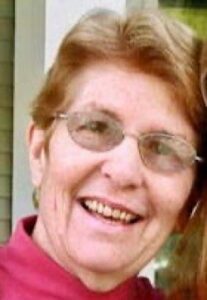 Harriet Sullivan (nee Harriet Jackson Hilts) passed away peacefully on Sept. 25, 2025. She was born on Nov. 5, 1936 in New York City to Erwin Rumsey Hilts and Harriet Canfield Jackson Hilts. Harriet was the beloved mother to her daughter Anne Cloud of Loudon, Tenn., son James Cloud (Kim) of Reading, Vt., and daughter Michelle Cloud Whiting (Oliver) of Whitefish, Mont. Her greatest joy were her grandchildren, Danielle Martin, Chelsea Cloud, and Brandon Christopher.
Harriet Sullivan (nee Harriet Jackson Hilts) passed away peacefully on Sept. 25, 2025. She was born on Nov. 5, 1936 in New York City to Erwin Rumsey Hilts and Harriet Canfield Jackson Hilts. Harriet was the beloved mother to her daughter Anne Cloud of Loudon, Tenn., son James Cloud (Kim) of Reading, Vt., and daughter Michelle Cloud Whiting (Oliver) of Whitefish, Mont. Her greatest joy were her grandchildren, Danielle Martin, Chelsea Cloud, and Brandon Christopher.
In her early years, Harriet was an avid tennis player and loved sailing. Harriet moved to Reading in 1975, where she quickly immersed herself into her small farm. She enjoyed gardening and raising Scottish Highland and Santa Getrudis cattle, pigs, sheep, goats, donkeys, chickens, her dogs, and cats. Her love of animals was shared with her children and grandchildren.
Harriet was very involved in her church, the First Congregational Church of Woodstock, and enjoyed the fellowship of her fellow parishioners.
She loved travel adventures and thoroughly enjoyed taking long cruises and seeing different parts of the world.
A memorial service will be held at the First Congregational Church of Woodstock, 36 Elm Street, Woodstock, Vt., on Tuesday, Oct. 7 at 2 p.m.
In lieu of flowers, please send a donation in Harriet’s name, to your local Volunteer Fire Department or Fast Squad.
An online guestbook can be found at cabotfh.com.
October 1
6:55 am
John Lowell Putnam
You are invited to join a memorial gathering for John Lowell Putnam on Saturday, Oct. 11 at noon. It will be held at South Woodstock Community Church on Route 106 in South Woodstock. Reception to follow at 106 Kendall Road, South Woodstock. RSVP to srputnam@gmail.com or 802-457-8102.
October 1
6:55 am
Nancy Fogg Doten
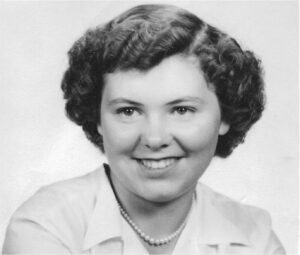 Nancy Fogg Doten passed away peacefully on Sept. 27, 2025 surrounded by loved ones. Nancy lived a full life and will be remembered by her loving and generous heart, her support of her community, and kind and lively spirit.
Nancy Fogg Doten passed away peacefully on Sept. 27, 2025 surrounded by loved ones. Nancy lived a full life and will be remembered by her loving and generous heart, her support of her community, and kind and lively spirit.
Nancy was born on May 15, 1933 to Frank and Florence Fogg in Pomfret, and attended Pomfret schools and Hartford High School. In 1950, she went on a blind date with Fred Doten and a year and a half later they were married. Oct. 6, 2025 will be their 74th wedding anniversary.
Nancy was a loving and supportive wife, mother, and friend. Among other jobs, Nancy worked at Guthrie’s Nursing Home, cooked and cleaned at MIT’s Talbot House in Pomfret, and was the Windsor County Clerk for many years. Nancy and Fred have lived and worked on Elm Grove Farm for the entirety of their marriage.
Nancy enjoyed square dancing and she and Fred were members of the Sugarhouse Swingers. She loved camping in Maine, and attended the Fryeburg Fair for over 30 years. She loved birds, especially owls, and enjoyed sitting on her lawn and watching the animals on the farm. She was also well-known for knitting wonderful socks, which she loved to give away, and sewing beautiful quilts, which hang on their porch.
Nancy was predeceased by her parents, brothers Lawrence, Donald, and sister Margaret, sister-in-law Joan Staples, and by great-granddaughter Isabela. She is survived by husband Fred; brothers Nelson, and Raymond; sisters Eleanor, Katherine, Barbara; brother-in-law John; children Fred (Sandy), Sherry Stubbins (Robert), Michael (Amy), Marie Robinson (James), James (Nancy); seven grandchildren and seven great-grandchildren.
A Celebration of Life service will be held on Oct. 18, at the Pomfret Town Hall 2-4 p.m. In lieu of flowers, contributions can be made in Nancy’s memory to the Thompson Senior Center or the Woodstock Food Shelf.
An online guestbook can be found at cabotfh.com.
Annual Appeal
September 25
6:55 am
We’ll be your eyes and ears, if you’ll have our back
By Dan Cotter, Publisher
Well, my friends, this is my fourth and final article of our 2025 annual appeal.
Once again, this year, it’s been a privilege to talk directly with you about the mission we’re on at the Vermont Standard and the difficult challenges we face — to ask if you’ll please consider donating to the Woodstock Region Journalism Foundation in support of our efforts to connect our community and keep you informed on issues of public importance.
 Today, the main thing I want you to know is that we are proud to work for you.
Today, the main thing I want you to know is that we are proud to work for you.
We know you’re counting on us to be your eyes and ears — filling you in about local government actions that affect you, about local crime, about court cases playing out here, about notable news items and occurrences, the accomplishments of our neighbors and local youth, about developments at our schools, churches, businesses, and charitable or civic organizations, about the happenings and things to do in the local area, and lots more.
We are the one and only news source that’s entirely focused on our area; reporting news that’s primarily of interest right here. Our work — week in and week out — is entirely dedicated to the welfare of this community.
That’s the way it’s been here for 172 years. And Phil Camp and I and our small team are now trying to produce a 2025 version of the Vermont Standard that’s the best it has ever been in the paper’s long history.
The Standard is for you. It exists simply to benefit you and your neighbors. We regard this responsibility and the trust you place in us as a badge of honor. We pledge to give it our best. All we’ve got.
As I’ve explained before, the financial pressures we face are intense. And, tragically, various powers that be are trying to exert additional pressure in a sad attempt to undermine the press. By extension, their actions undermine you, the public. That’s nothing new, really, but it’s pretty acute right now. Shame on them.
However, with your donations to keep us afloat, we’re hanging in there, staying strong and getting stronger. We are continuing to work, not only on improving this week’s Vermont Standard, but next month’s and next year’s too, as we attempt to set things up so we can produce high-quality local journalism for the long term.
We’ll make sure your gift is put to good use as a worthwhile investment in one of the key components of the critical infrastructure that underpins this community.
As a citizen, it’s essential for you to be well-informed. That’s the only way we can have a functioning local democracy and a lively, connected community. As your eyes and ears, we’ll continue to follow the news closely and report it to you in new, better, and more engaging ways as time goes on.
We hope to make you proud as we strive to do the best community journalism in the country. We believe that’s a realistic goal. This weekend — for the ninth time in the last twelve years — the Standard will once again be a finalist for the honor of being named New England Weekly Newspaper of the Year.
When it comes to journalism, we believe you deserve the absolute best.
We are deeply appreciative of any financial help you can offer in this year’s 2025 annual appeal. In fact, if you’re interested, Phil Camp and I would be very grateful for an opportunity to meet with you in person to talk more about what’s needed and our plans. Please don’t hesitate to contact us at dcotter@thevermontstandard.com or 802-457-1313.
Also — very importantly — if you have a family foundation, please consider adding the Woodstock Region Journalism Foundation (EIN: 93-3287932) to the worthwhile causes you regularly support. We’ll be deeply indebted to you.
The Woodstock Region Journalism Foundation is a public charity, so your gift will be fully tax-deductible.
If you’re willing to make a tax-deductible donation to our 2025 Annual Appeal, please send a check to PO Box 88, Woodstock, VT 05091, or go to our Vermont Standard THIS WEEK website at thevermontstandard.com to make a contribution with your credit card. Be sure to make your check out to the “Woodstock Region Journalism Foundation.”
September 17
4:15 pm
Connection matters: Long live the Standard’s stories that connect us
By Dan Cotter, Publisher
Lord knows, there are lots of fascinating people in our community.
At times, it seems as if every person you meet here in the course of a day is even more interesting than the last one. Sometimes, I marvel at how in the world all these wonderful and impressive folks are either from here or ended up here, in this little corner of Vermont.
Of course, I’m lucky. I get to participate in our story planning meetings at the Standard each week to decide who and what we’re going to write about next. Beyond the breaking news, what feature stories should we write – about which people, which organizations, which businesses?
It’s a joy.
There are always plenty of nominations. And then, even though you think you pretty well know who someone is or what an organization does and stands for, our reporter does a deep dive and provides new insight about them or their work or their cause in an account that’s simply breathtaking. Who knew? Right here among us!
I often refer to the Vermont Standard as a kind of “glue” for our community. It’s a paper everyone can turn to in order to stay informed about the local news — the goings-on, the things to do. Something to look forward to each week to catch up on the latest. A common experience shared by those who live here or care about this place.
But maybe the best part about the Standard is the way it enables us to connect as a community. The way it helps us get to know each other better by introducing us to that really interesting person who lives next door (sometimes literally). And I’ve found that typically the more impressive people are, the less likely they are to talk about themselves. They’re too modest. So, it takes a nosy reporter to get them to tell their full story.
And the same goes for some of the incredible organizations in the area, including charities, nonprofits, schools, churches, arts organizations, libraries, history centers, and many more. They aren’t always focused on touting or telling their story – about what they do, who they help, what they accomplish. Often, they toil away under the radar. But the Standard is eager to bring their story to the public’s attention. We want to shine a spotlight, applaud their work, and make the folks who might decide to join or support them aware of them.
Soon, we’ll be bringing you those kinds of stories on video too, as we roll out our Headliners and Inside Scoop programs this fall.
The bottom line is that living in a community is much more fulfilling for most of us when we get to know more about the ordinary people among us, who are doing some pretty extraordinary things. Reading about them and their aspirations and accomplishments in the Standard is fun, and, on occasion, when those stories also explain their struggles and failures, their resilience and ultimate triumphs, it can be touching to read, inspiring even.
These stories help us all feel a deeper sense of kinship with the people and organizations in our midst. They connect us and make us feel that we all truly belong to this beautiful community.
As I said, being this glue that strengthens our connection? It’s a joy.
 We are deeply appreciative of any financial help you can offer in this year’s 2025 annual appeal. Our effort to preserve quality journalism for our community is quite urgent, my friends. And Phil Camp and I would be very grateful for an opportunity to meet with you to talk more about what’s needed and our plans. Please don’t hesitate to contact us at dcotter@thevermontstandard.com or (802) 457-1313.
We are deeply appreciative of any financial help you can offer in this year’s 2025 annual appeal. Our effort to preserve quality journalism for our community is quite urgent, my friends. And Phil Camp and I would be very grateful for an opportunity to meet with you to talk more about what’s needed and our plans. Please don’t hesitate to contact us at dcotter@thevermontstandard.com or (802) 457-1313.
Also, if you have a family foundation, please consider adding the Woodstock Region Journalism Foundation (EIN: 93-3287932) to the worthwhile causes you regularly support.
The Woodstock Region Journalism Foundation is a public charity so your gift will be fully tax-deductible.
Your donation will be utilized in the form of project grants to support the Vermont Standard’s mission to inform, connect, and educate our community on issues of public importance.
If you’re willing to make a tax-deductible donation to our 2025 Annual Appeal, please send a check to PO Box 88, Woodstock, VT 05091, or go to our Vermont Standard THIS WEEK website at www.thevermontstandard.com to make a contribution with your credit card. Be sure to make your check out to the “Woodstock Region Journalism Foundation.”
September 11
6:55 am
Our survival is necessary but not sufficient
By Dan Cotter, Publisher
For the past 15-20 years, most local newspapers have been trying to “do more with less” in an effort to survive. And, of course, since that’s not a good long-term strategy, it has put our industry into a slow death spiral.
America has lost 3,200 of its newspapers in that same period of time, and currently, an average of more than two per week go out of business. Hundreds more papers are on life support, as they try to hang on by cutting staff, cutting pages, cutting the frequency of their publishing days, and eliminating their print editions. In their resulting emaciated state, those papers certainly can’t serve the need for local news and information in their communities.
Those withered newspapers are called “ghost papers,” because they are hollowed out shells of their former selves. Technically, they still exist. They continue to survive. But the communities counting on them? Well, they can no longer really count on them.
The handful of hedge funds and corporate raiders that bought up so many of our nation’s newspapers and ruined them wrote the playbook. In their effort to “rightsize” (meaning to dramatically downsize…) their papers in the face of diminishing advertising revenue, they chopped the expenses. Severely.
For newspapers, the primary expense is paying the people who work there. After many rounds of staff cuts, those papers barely cover any news at all, because they no longer have enough people to do it.
And as many of the small independent papers – like the Standard – encountered those same advertising revenue headwinds, lacking a better plan, they began following the same playbook. Consequently, in their efforts to survive, they now f ind themselves in that same never-ending spiral of cost-cutting.
Also, newspapers in that ragged state aren’t able to do the type of development work required to create a sustainable path for the future. In order to survive beyond just this week or this year, news organizations must create new services and revenue streams that will support them long-term. To do that takes time, thought, experimentation, risk-taking, and perseverance.
The beleaguered staff that’s left at most newspapers today simply lacks the energy for that.
“Doing more with less” (and less, and less…) was originally supposed to be a stopgap measure to buy time for newspapers to get their feet under them so they could forge a path to sustainability. Sadly, though, for most, it’s simply become standard operating procedure.
Fortunately, for our community here, the Vermont Standard has not followed that all too popular “survivor” playbook. We’ve never wanted to preside over a slow death march, just to be able to say we’re still publishing, but, in fact, failing to serve the very real need for local news, information, and connection in this community.
Thanks to your financial support, we’ve been able to go another way. Instead of doing more with less, we realize that we – and all local news organizations, especially in today’s political climate – just need to do more. Much more. And while doing that, we also need to create a sustainable path forward so we can live on to serve this community in even better ways for many more years.
Our efforts to survive are actually just the first step towards our real intention, which is to thrive.
In fact, with your help, we’ve upgraded our staff and improved our publication in recent years. The team we have reporting local news is now stronger than ever. They have a good deal of talent and a whole lot of heart, working for ridiculously low wages at this frugal newspaper, yet fueled by such a worthy mission. At the Standard, we haven’t forgotten why we exist in the first place. We are striving to provide wall-to-wall coverage of a steady stream of complex stories that are of great interest and importance to this community we serve.
We’ve also enhanced the look, feel, and utility of our publications.
And we’ve expanded our digital news and information products – we are doing more and more online programming with them. This fall, we are introducing our new series of “Headliners” interviews with local newsmakers that you’ll be able to view on our Vermont Standard THIS WEEK website. Also, we’re introducing a new show called “Inside Scoop”, which will give you an in-depth, insider look at the goings-on at many of the businesses and organizations that make our community so special.
At the Standard, we are trying to save a real newspaper that offers the powerful local journalism our community needs to function properly. Not a ghost paper. The Standard has to be good enough to get the job done now and survive in the long run. “Right-sizing” here does not mean a diminished publication that’s essentially worthless, as it does in so many communities throughout our nation. Here, it means being just big enough to provide the essential local journalism that contributes mightily to the quality of life in our community, and break even.
That’s the kind of Vermont Standard we are trying so hard to preserve, while setting things up so we can provide the quality local journalism our community needs well into the future.
I sincerely hope you’ll join us on this very important mission.
 As we begin this year’s 2025 annual appeal, we are deeply appreciative of any financial help you can give us. Our mission is quite urgent, of course, and Phil Camp and I would be very grateful for an opportunity to meet with you to talk more about what’s needed and our plans. Please don’t hesitate to contact us at dcotter@thevermontstandard.com or (802) 457-1313.
As we begin this year’s 2025 annual appeal, we are deeply appreciative of any financial help you can give us. Our mission is quite urgent, of course, and Phil Camp and I would be very grateful for an opportunity to meet with you to talk more about what’s needed and our plans. Please don’t hesitate to contact us at dcotter@thevermontstandard.com or (802) 457-1313.
Also, if you have a family foundation, please consider adding the Woodstock Region Journalism Foundation (EIN: 933287932) to the worthwhile causes you regularly support.
The Woodstock Region Journalism Foundation is a public charity so your gift will be fully tax-deductible.
Your donation will be utilized in the form of project grants to support the Vermont Standard’s mission to inform, connect, and educate our community on issues of public importance.
If you’re willing to make a tax-deductible donation to our 2025 Annual Appeal, please send a check to PO Box 88, Woodstock, VT 05091, or go to our Vermont Standard THIS WEEK website at thevermontstandard.com to make a contribution with your credit card. Be sure to make your check out to the “Woodstock Region Journalism Foundation.”
September 4
6:56 am
Stewarding your paper in these difficult times is the honor of a lifetime
By Dan Cotter, publisher
It’s been said that there are very few things in life that you can always count on. But there are indeed a few, and I believe you’re holding one of them in your hands right now (or perhaps reading it on a screen).
For 172 years, the people of Woodstock, Hartland, Pomfret, Barnard, Bridgewater, Reading, West Windsor, Quechee, Plymouth, and the surrounding towns have counted on the Vermont Standard to keep watch on things in order to keep them informed, empowered, and connected. Our columnist, Dave Doubleday, replays some of the top stories of the day that took place 10, 20, 50, 75, or 100 years ago in each installment of his brilliant “Olde Woodstock” feature. It’s amazing and quite reassuring that people here were reading this same paper all those years ago simply to find out what’s happening.
Just as you are today.
All this time, citizens – informed by the Standard — were able to fully participate in their local democracy as our area progressed to the state it’s in today. What a huge responsibility it must have been, and still is today, to produce this newspaper each week. To prepare a quality news report to help readers experience and enjoy day-to-day life here and make good decisions for their community.
 It’s the honor of a lifetime to be entrusted with this responsibility. The Standard has a small crew of talented, fair-minded, and underpaid journalists doggedly pursuing their mission week in and week out — trying to produce an interesting local news report that will inform, educate, and entertain the people who live here. It’s a “weekly miracle.” We start with a blank page each Wednesday afternoon, and we work tirelessly to pursue stories and produce the very best finished publication we can by the following Wednesday, so that it will be in your mailbox or at the store for you on Thursday.
It’s the honor of a lifetime to be entrusted with this responsibility. The Standard has a small crew of talented, fair-minded, and underpaid journalists doggedly pursuing their mission week in and week out — trying to produce an interesting local news report that will inform, educate, and entertain the people who live here. It’s a “weekly miracle.” We start with a blank page each Wednesday afternoon, and we work tirelessly to pursue stories and produce the very best finished publication we can by the following Wednesday, so that it will be in your mailbox or at the store for you on Thursday.
In the century and a three-quarters that this paper has existed, this is our time, and our team is attempting to make a proud contribution to its legacy.
Ours certainly isn’t the easiest time to be a journalist in the Standard’s and our community’s history. This is a time of transition, when traditional forms of funding for local journalism have waned. Now, we have not only to strive to produce an excellent news report each week, but we also have to hold our breath that we’ll even be able to stay afloat.
An average of more than two newspapers fold in the U.S. each week (3,200 have vanished in the past twenty years!), leaving their communities without this kind of “glue” – without the common experience of reading in print or online about issues that affect them and their neighbors and a comprehensive set of facts for all to know about what’s happening in their local area each week.
Making matters worse, hundreds of other towns throughout the nation now only have a “ghost newspaper” that is so financially compromised it can barely cover any local news in its meager news product.
Some people – perhaps taking a page from the playbook being used at the national level – might prefer that ours was a weaker, sleepier paper and that they could exert some kind of pressure to compromise the Standard’s coverage.
But they’re mistaken. It hasn’t worked in 172 years, and we won’t let it happen now. Count on it.
We’ve had many complex (and interesting!) local stories to cover just in this past year — news that people here are counting on us to follow and explain. From the Woodstock Foundation lawsuit, to school policy, budget and reorganization issues, to Peace Field Farm, to the water company purchase, to short-term rental ordinances, to the police chief demotion, to the proposed cell phone tower and farm outlet store in Hartland, to the ECFiber case, to the ongoing housing and child care shortages, to the impact of federal funding cuts on local organizations. And we’ve had many milestones and achievements to celebrate, from our football state championship team, to our local priest’s 50th anniversary of his ordination, to the resurgence of Bookstock, to local artists and authors who released their latest works, to this year’s graduates, to a pair of brothers who achieved the rank of Eagle Scout, to the dedication and resilience shown by those remarkable protesters in Woodstock. Even the announcement of plans for a new performing arts center, and the sighting of low-flying military planes over Woodstock. Those stories aren’t easy or inexpensive to cover, but like the journalists at the Standard who were our predecessors throughout those many, many years, it’s our solemn responsibility to inform the public about the public’s business, the very best we can.
Indeed, we can, primarily because we now have the support of hundreds of residents and readers who truly understand and value what quality local journalism does — and has always done — for our community here. They respond to our annual appeal each year. They keep us afloat. They keep us encouraged. They harden our resolve to try ever harder to serve this community and this local democracy. We count on all of you.
Oftentimes, I’ve asked individual donors, “What can we possibly do to thank you for your generosity?” And, to a person, they always say, “Just keep putting out a darn good newspaper.”
In appreciation for you, our friends, the Standard has only one single objective and guiding light going forward: to keep trying to put out a better and better paper each week in service to this community.
You can count on us.
As we begin this year’s annual appeal, we are deeply appreciative of any financial help you can give us. Our mission is quite urgent, of course, and Phil Camp and I would be very grateful for an opportunity to meet with you to talk more about what’s needed and our plans. Please don’t hesitate to contact us at dcotter@thevermontstandard.com or (802) 457-1313.
We sincerely hope you’ll join us in our mission by contributing to this year’s 2025 annual appeal.
Also, if you have a family foundation, please consider adding the Woodstock Region Journalism Foundation (EIN: 93-3287932) to the worthwhile causes you regularly support.
The Woodstock Region Journalism Foundation is a public charity so your gift will be fully tax-deductible.
Your donation will be utilized in the form of project grants to support the Vermont Standard’s mission to inform, connect, and educate our community on issues of public importance.
If you’re willing to make a tax-deductible donation to our 2025 Annual Appeal, please send a check to PO Box 88, Woodstock, VT 05091, or go to our Vermont Standard THIS WEEK website at www.thevermontstandard.com to make a contribution with your credit card. Be sure to make your check out to the “Woodstock Region Journalism Foundation.”
August 29
5:45 am
Now it’s official -- IRS approves Journalism Foundation as public charity, donations are tax deductible
By Dan Cotter, publisher
A huge sigh of relief and a fist pump were my first reactions, as well as a gaze skyward as I mouthed the words “thank you!” The tears welling up in my older friend’s eyes were his response when I told him.
Then we shared a long, hard hug.
After lots of research and preparation, and then six months of waiting for the application to be processed, Phil Camp and I recently learned that the IRS has approved the Woodstock Region Journalism Foundation’s application for tax-exempt status under section 501(c)(3) and deemed the Foundation to be a public charity.
The approval wasn’t in much doubt, really. But now it’s official.
The Foundation was established last August and it is primarily dedicated to preserving the Vermont Standard and its role in informing citizens and supporting democracy in our area well into the future. The Foundation has a board made up of local residents who care deeply about our community and the value local journalism provides. Phil and I are on the board too. Together, we’re working to keep the 171-year-old Vermont Standard going while taking steps to position the paper’s print and digital journalism for long-term sustainability.
Recognizing the critical role the Standard plays in informing and connecting our community, this Foundation wants to avoid letting our area become a “news desert,” as has happened in hundreds of other places throughout the US in recent years. Newspapers like the Standard are currently dying off at a pace of 2.5 per week. Nor do we want to end up like the hundreds of cities and towns where profit-seeking corporations that have no devotion to the public welfare have acquired their local paper and stripped it of its resources, to the point that it is only a pathetic shadow of its former self and incapable of doing its job.
Providing accurate, credible, reliable news and information to its audience is a local news organization’s primary role. A functioning democracy requires an informed, engaged public. The Woodstock Region Journalism Foundation’s board members, advisors and friends will help Phil and I in our mission to raise enough money to keep quality journalism flowing here.
So, I’m glad to report that any donation you’ve made to the Woodstock Region Journalism Foundation to support the Standard’s mission to inform, connect, and educate our community on issues of public importance is indeed tax-deductible dating back to the inception of the Foundation in late August 2023, as all donations will be going forward.
At 88 years old, Phil feels a real sense of urgency about making sure that our community will always have local journalism – especially given the 40+ years he’s dedicated to leading the paper and his unrivaled love for Woodstock and its surrounding towns. We know we’re in a race against the clock. But now, with the Foundation’s charity status and your tax deduction confirmed, we hope there will be even more support from donors and family foundations that will help us accomplish this very important mission.
Thank you from the bottom of our hearts for your encouragement and generosity. If you would like to contribute to our Annual Appeal, please send us a check at PO Box 88, Woodstock, VT 05091, or go to our Vermont Standard THIS WEEK website at https://thevermontstandard.com/annual-appeal/ to make a contribution with your credit card. Please be sure to make your check out to the “Woodstock Region Journalism Foundation.”
August 29
5:05 am
Hard to imagine Woodstock without the Standard
“View From Here”
By Sandy Gilmour, Woodstock resident
If you are reading this column right now, that’s good news for the community. It means you probably paid for this paper, hard copy or online, maybe even made a donation to it, and value its contribution to our lives in Woodstock and surrounding areas. We are so fortunate to have the Vermont Standard week in and week out. For years, small-town dailies and weeklies have been closing their doors, leaving communities without a soul. Papers like the Standard are dying off at the rate of two per week across America.
Such towns are called “news deserts.” Imagine weeks, months and years going by with no professional reporting on selectboards, trustees, school boards, taxes and roads. Zero stories about public school events, sports, student accomplishments, obituaries, gardening tips, neighborly cooking advice, local history, and no reports from towns from Brownsville to Pomfret.
We would know next to nothing about the interminable Peace Field Farm restaurant delay, the Ottauquechee Trail head fiasco, the high-stakes Woodstock Foundation controversy and the fatal shooting off Central Street, including the bravery of Woodstock Police Sgt. Joe Swanson. In my view, these stories have been really well reported.
To not get these stories delivered to us every week would be a news desert right in verdant Woodstock, for sure, a gaping hole left to be filled by rumor and mis- and dis-information, the precursors of community dissolution. So we are blessed indeed to have had the Vermont Standard around — nonstop — since 1853, and owned by beloved Woodstocker Phil Camp, now 87, since 1981.
But as Mr. Camp has pointed out many times over the years, the paper’s solvency hangs on a thread and now more than ever. In hundreds of towns across America, owners, beleaguered by losing subscribers and advertising to social media, simply folded or sold out to hedge funds and private equity firms, whose investors are bereft of community values. Not Phil Camp. He has always said, “I never sold out. I’m never giving up.” He made up for past deficits (difference between expenses, like staff, and income from subscriptions and ads) out of company savings from better times, week after week. He stayed with it after being flooded out by Tropical Storm Irene in 2011 and being burned out by the Central Street fire of 2018 (taking out his camera and snapping photos of the flames and rubble).
The paper was in dire straits when COVID hit, saved by the forgiven federal PPP (Paycheck Protection Program) loans through 2021, when the largesse ended. Then beginning in January 2022, the community stepped up, responding to a fundraising appeal. I was rather stunned to learn from the Standard’s publisher, Dan Cotter, that the paper’s annual shortfall of $150,000-$200,000 is being covered by donations from local Woodstock residents. There are many (and appreciated) donations in the $50-$100-$200 range, but really heavy lifting is being done by donors of means who, Mr. Cotter says, highly value the contribution local journalism makes to communities. Several of these more-than-generous and anonymous donors contribute $20-25,000 and more — each — and, Mr. Cotter says, without any hint of trying to influence coverage. Without them, surely there would be no Vermont Standard in the mailbox or online, just the unreliable grapevine. At the same time, the paper is moving to create other revenue streams, including an online advertising app for Woodstock happenings and a magazine, in addition to improving thevermontstandard.com website for go-to news.
Still, the operation is bare bones. It seems to me a miracle the paper “hits the streets” without fail every Thursday with some pretty good and important stories that we need to know about, and many features that are good to know about. And there are just two, count them, two, full-time staffers who report stories: the seasoned and prolific Tom Ayres, and Tess Hunter, who is also the managing editor. Ms. Hunter says reporter staffing is the big issue; she has on hand freelance contract reporters that can be assigned to stories if they are available and if they want to spend the evening at yet another unexciting if important selectboard meeting. “It’s a constant juggling act,” Ms. Hunter told me, “between finding the right person for the story and just getting people to say ‘yes.’” Still, she is committed, saying, “Without us making the attempt, there would be no common base of understanding and little sense of the community spirit of the area or the hard news happening within it.”
Volunteer contributors are crucial; regular community writers like Jennifer Falvey (insightful musings on life) and Kurt Stauder (pointed political observations) are popular. Mary Lee Camp’s business column is relentlessly informative.
Other key staff are listed in the box below — lean and spare!
Publisher and editorial content director Dan Cotter, 64, hired by Mr. Camp in 2018 after years of informal consulting for the Standard, is not a household name in Woodstock, though he is hands-on every issue. He owns a condo in the area and is here about half the month, returning to his home and wife in Chicago for the remainder. He has decades in the industry as an executive and consultant, was head of the New England Newspaper and Press Association, and takes a no-nonsense hard line on newspaper independence and objectivity. It’s an unusual situation but Mr. Camp, still the president of the company, has total confidence in Mr. Cotter and has turned over the Vermont Standard, its operation, assets and its future, to his close friend. Mr. Camp has indeed not “given up,” but hopes to ensure his dear newspaper’s future with this arrangement.
So where does the Standard go now? Around the country, journalists are reinventing newspapers and online reporting. The most promising seems to be the non-profit model, where deductible contributions from community-minded supporters can be made even as the publication accepts subscription fees and what advertising there is left. There are indications that the Standard is moving in this direction, and the sooner the better, in my view. When I pressed Publisher Cotter on the issue, he responded with this very encouraging comment:
“In the past couple of years, members of the community have literally kept the Standard alive with their donations — and a handful of them have given very substantial sums, even without the benefit of a tax break. That’s how much they value the role our local journalism plays in the quality of life in our area. We are working now to put the paper on a path to where donors could indeed have a tax benefit. For it is essential to our democracy and our own survival that we have the financial support we need from the community to maintain a news organization — modest as it is — that’s capable of producing good local journalism that adequately informs our citizens.”
I can’t imagine Woodstock without the Vermont Standard. The new business model provides great hope the paper will not only survive but as a Woodstock-based non-profit, continue to expand coverage to benefit all of us in this great community.
Note: This (unpaid) column originated with me alone!
Sandy Gilmour is a retired NBC News correspondent who lives in Woodstock.
August 29
5:00 am

